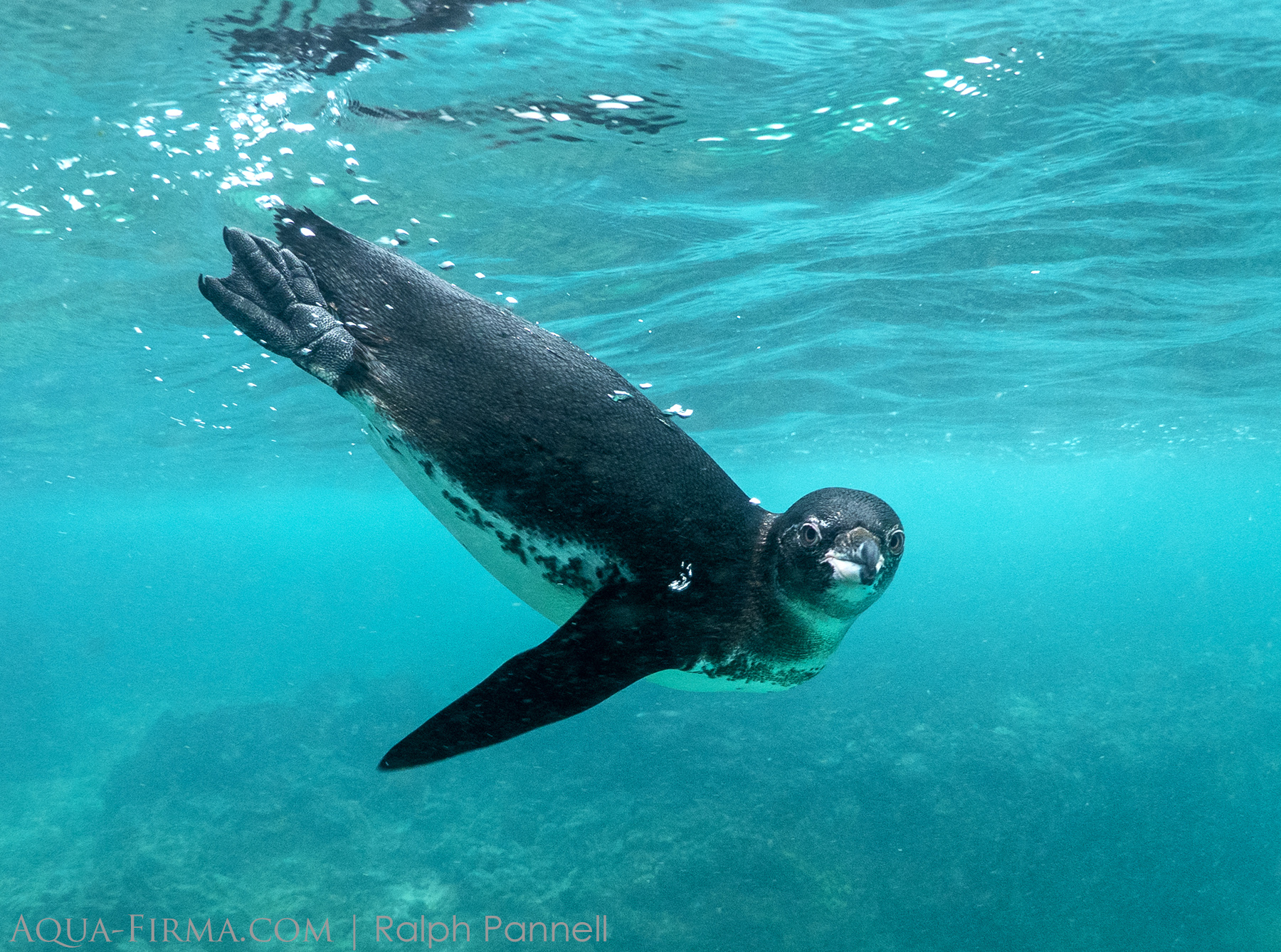Galapagos Shark Research Insights & Photography Dive Liveaboard
Galapagos
US$5,990
Schooling hammerhead sharks; some of the world's largest whale sharks; pods of dolphins on safety stops; oceans filled thick with fish; Galapagos sharks; white-tip reef sharks; spotted eagle rays; playful sealions ... the Galapagos has as much to offer underwater as it does above.
For Deeper Insights into the underwater world of the Galapagos, you can join one of the world’s leading shark experts, Dr Simon Pierce, on AQUA-FIRMA’s Shark Insights & Photo Scuba Diving Liveaboard to the Galapagos in prime whale shark season (27th July – 3rd Aug, 2026). Simon is director of the Marine Megafauna Foundation whose research & conservation work these trips help to fund. When you come onboard, you will learn some of the very latest research findings from around the world, plus have the option to receive personal photographic advice to help you capture moments which will take your breath away.
Here are some images taken during research and previous AQUA-FIRMA Shark Insights dive expeditions by Dr Simon Pierce, Dr Chris Rohner & Ralph Pannell. For details about how you can join us in July 2026 click HERE.
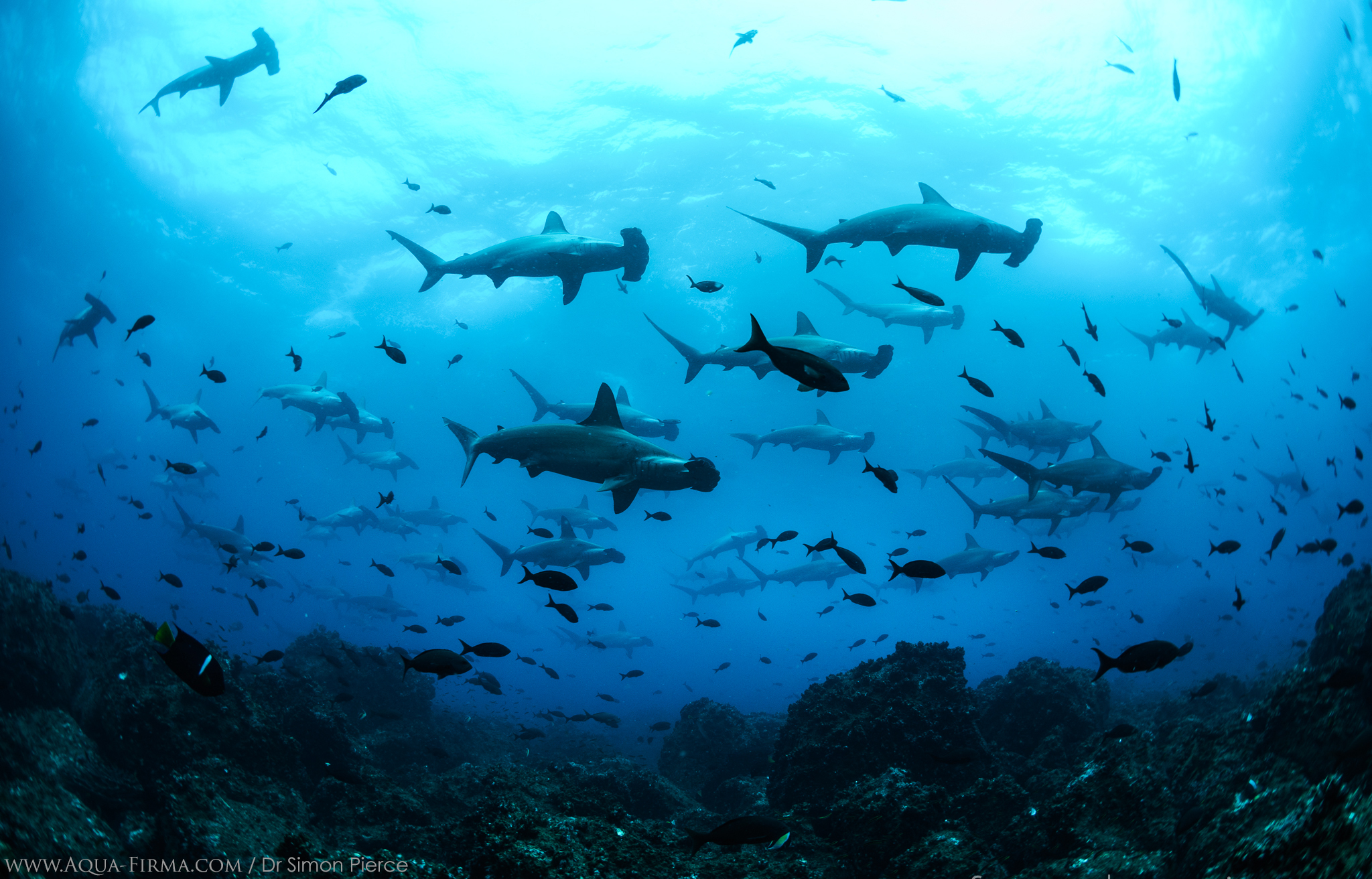
The Galapagos is one of the very few places left on Earth where you can experience schools of hammerhead sharks like this.
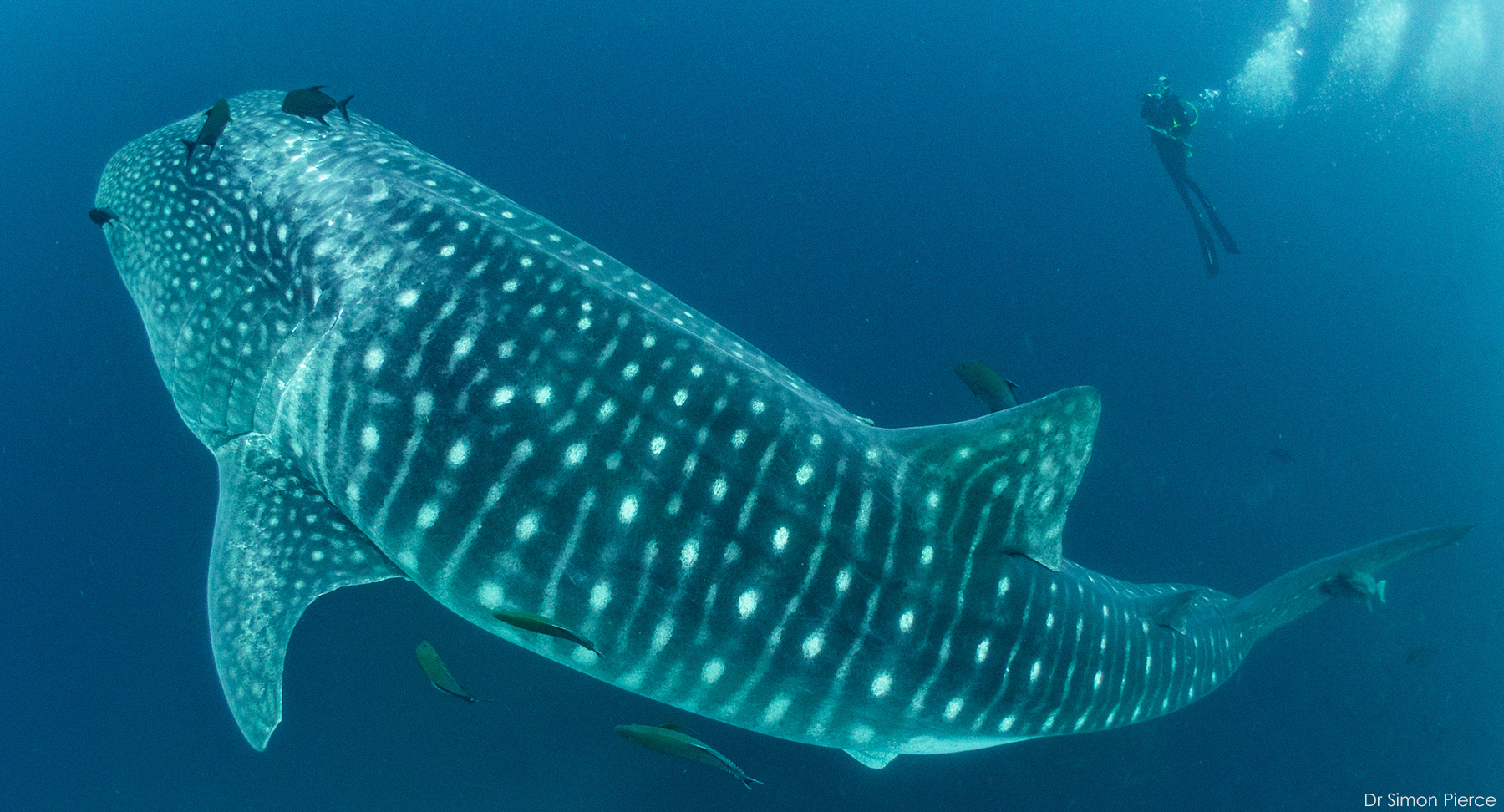
The Galapagos Islands are also home to some of the very largest Whale Sharks we see today, anywhere in the world.
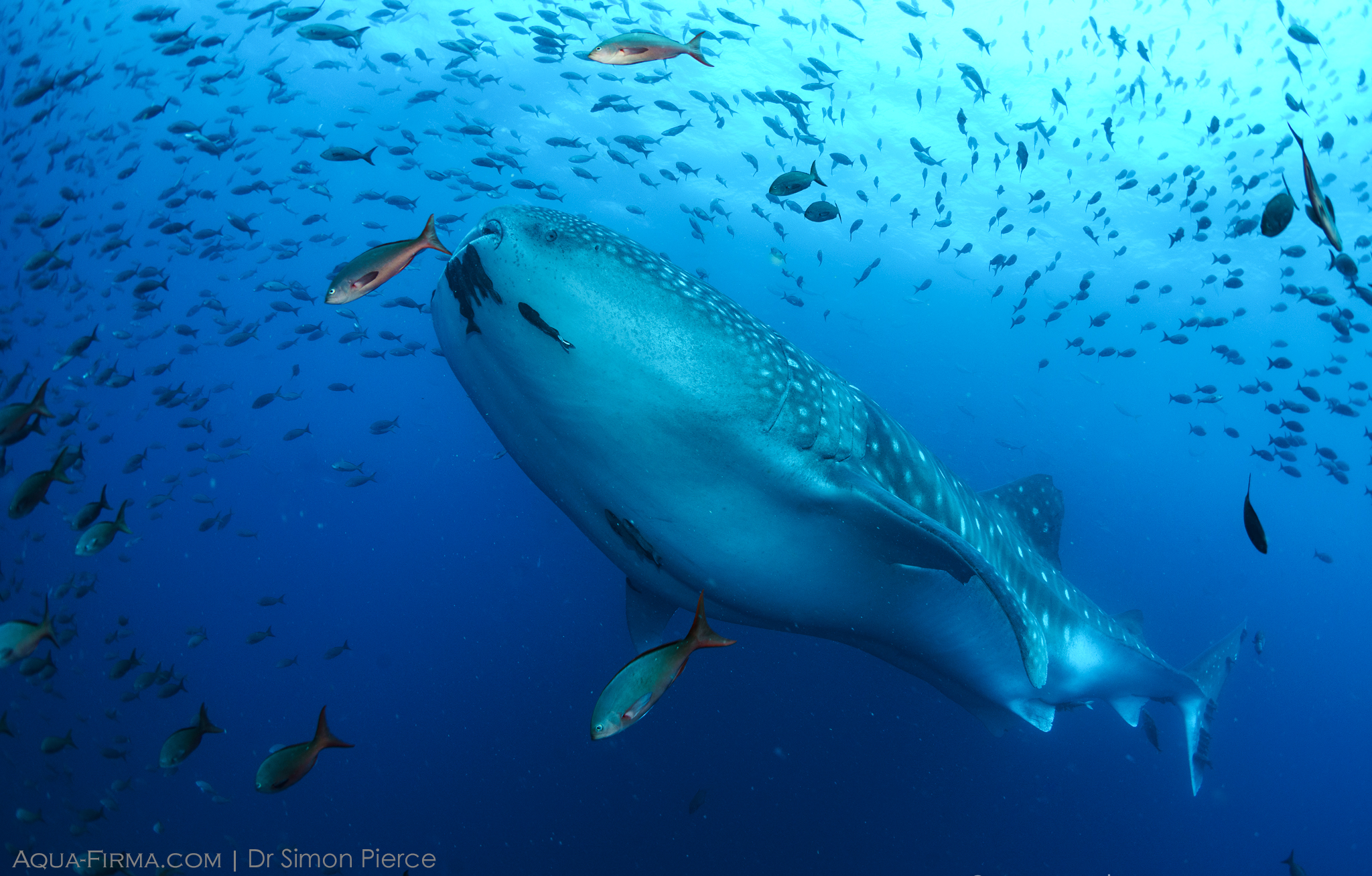
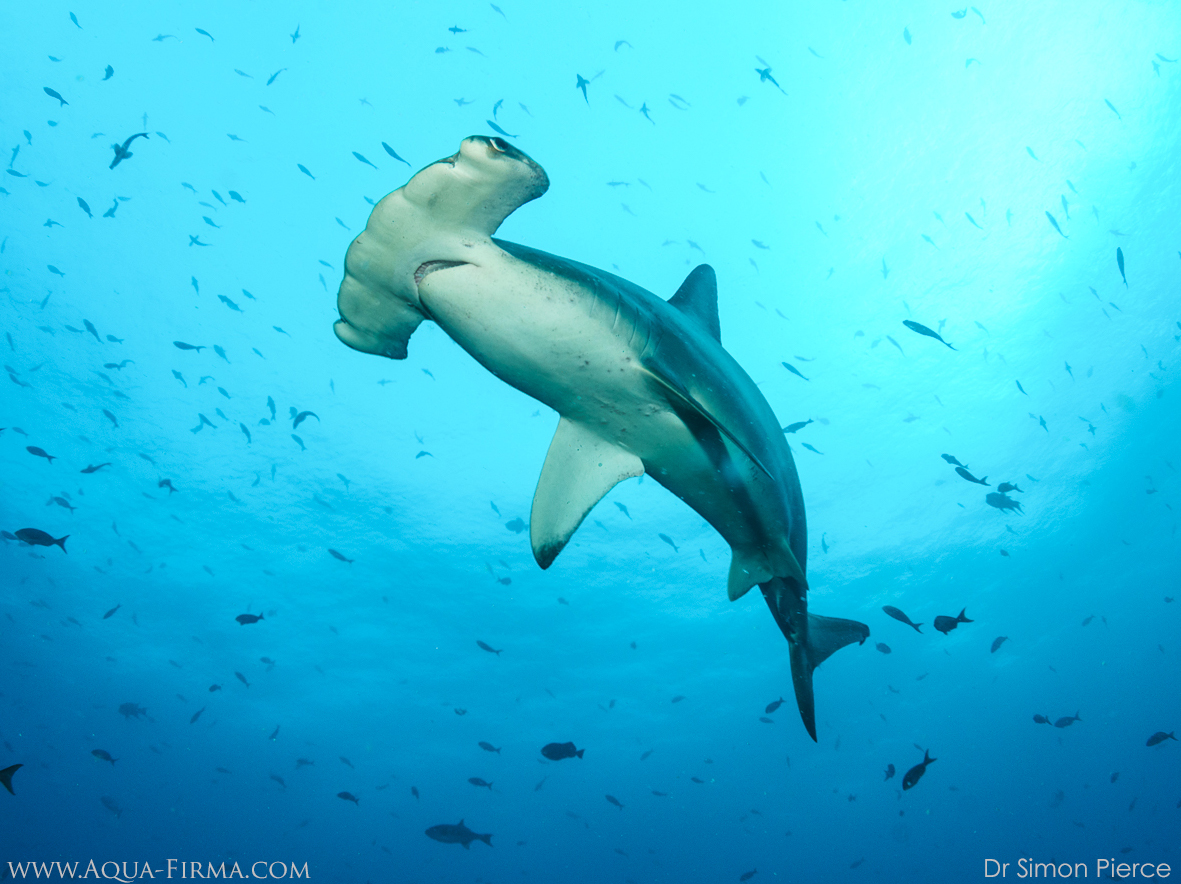
Seeing a school of hammerhead sharks is spectacular, but it can be even move exciting when one of them swims over for a closer look at us. We have enjoyed hundreds of encounters and not once felt threatened or had reason to feel unsafe in the company of of these beautiful sharks.

One of the great mysteries of whale sharks is where do they breed and give birth. The enlarged abdomen of female whale sharks found in the Galapagos led researchers to surmise that they were pregnant - perhaps in the area to give birth. A Japanese researcher photographed above and below conducted ultrascans to see inside several female whale sharks and none were found to be pregnant. The enlarged abdomen seems to be a physical feature of the larger individuals.

In addition to sharks, dolphins were a feature of every dive at Wolf Island on the last Shark Research Insights dive liveaboard I was onboard. From the surface they we clearly active in their quest for food and provided great entertainment during our safety stops.
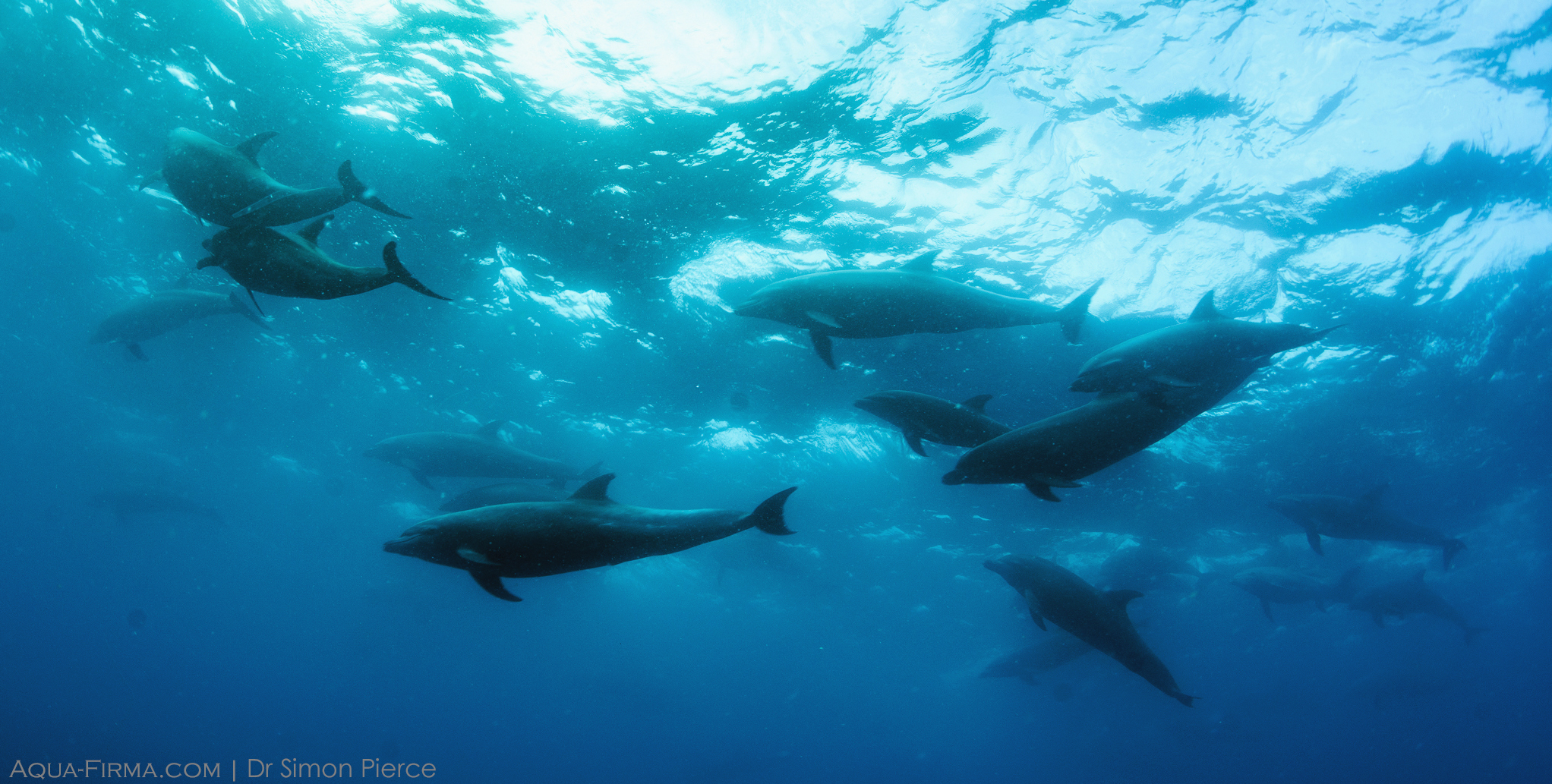
The reason dolphins are here in such large numbers is because of the abundant fishlife - especially during peak whale shark season July to early November.

This abundant fishlife attracts plenty of other marine life, including playful Galapagos Sealions:
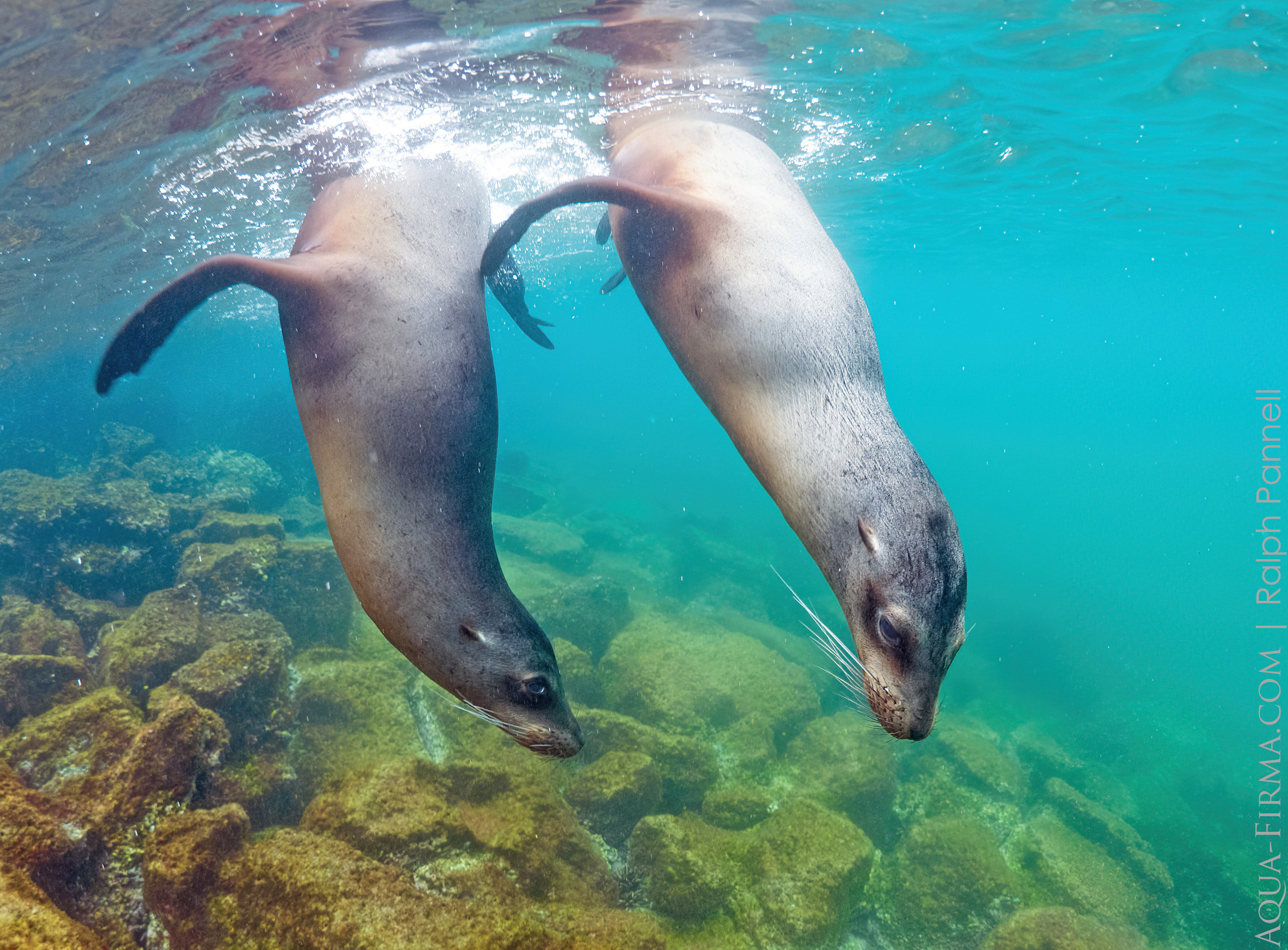
Here's just a couple of other iconic species we often see underwater on our Galapagos trips: endemic Marine Iguanas & the only penguin to live north of the Equator:

